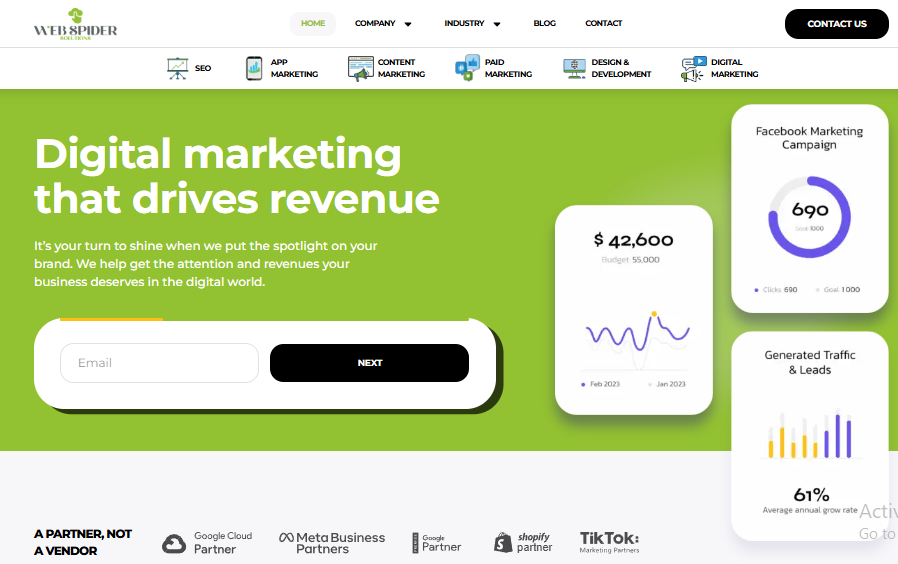Digital marketing gets more complicated every year as technology races ahead and customer habits keep shifting. One number stands out and grabs your attention. Only 36 cents of every programmatic ad dollar actually reaches consumers after fees and losses. Most people point fingers at the tech or the platforms. Turns out, the real problem is rooted in trust and privacy concerns that most businesses still have not figured out.
Table of Contents
- The Nature Of Digital Marketing Challenges
- Why Digital Marketing Challenges Matter For Businesses
- The Key Concepts Behind Digital Marketing Obstacles
- Real-World Examples Of Marketing Challenges Explained
- Strategies To Address Digital Marketing Challenges
Quick Summary
| Takeaway | Explanation |
|---|---|
| Prioritize data privacy practices | Implement transparent data collection and opt-out mechanisms to build consumer trust. |
| Adapt to technological changes continuously | Marketing professionals must learn new tools and frameworks due to rapid technological advancement. |
| Develop ethical marketing strategies | Ensure compliance with regulations and foster genuine connections with audiences in digital marketing. |
| Transform challenges into opportunities | View marketing challenges as chances for strategic differentiation and business growth. |
| Focus on holistic strategic navigation | Integrate technology, consumer psychology, and communication strategies for effective marketing. |
The Nature of Digital Marketing Challenges
Digital marketing has evolved into a complex ecosystem where businesses navigate increasingly sophisticated technological and strategic landscapes. At its core, challenges in digital marketing represent multifaceted obstacles that organizations must strategically address to maintain competitive advantage.
Understanding Core Complexity
The fundamental nature of digital marketing challenges stems from rapid technological transformation and shifting consumer expectations. Unlike traditional marketing approaches, digital platforms require businesses to continuously adapt to emerging technologies, algorithm changes, and sophisticated user behaviors. Explore our guide on digital marketing campaign strategies to understand these intricate dynamics.
Key challenges in this domain often involve:
- Maintaining authentic audience engagement
- Managing data privacy concerns
- Navigating increasingly complex algorithmic advertising systems
Consumer Privacy and Data Dynamics
One critical challenge emerging in digital marketing involves consumer data privacy. According to Pew Research Center, 81% of U.S. consumers report significant concerns about how companies utilize their personal information. This statistic underscores the growing tension between personalized marketing strategies and user privacy expectations.
Businesses must now develop sophisticated approaches that respect user consent while delivering targeted experiences. This requires implementing transparent data collection practices, providing clear opt-out mechanisms, and building trust through ethical data management strategies.
Technological Adaptation and Complexity
Digital marketing challenges are increasingly defined by technological complexity. Marketing professionals must continuously learn and integrate new tools, platforms, and analytical frameworks. The rapid pace of technological change means that strategies effective today might become obsolete within months, creating a perpetual cycle of learning and adaptation.
Successful digital marketing now demands a holistic understanding of interconnected technologies, user behaviors, and strategic communication approaches that transcend traditional marketing boundaries.
Why Digital Marketing Challenges Matter for Businesses
In the rapidly evolving digital landscape, understanding and addressing marketing challenges is not merely an option but a critical necessity for business survival and growth. These challenges represent significant strategic implications that directly impact a company’s ability to connect with customers, generate revenue, and maintain competitive positioning.
Financial and Operational Impact
Digital marketing challenges carry substantial financial consequences for businesses. According to the Association of National Advertisers, only 36 cents of each programmatic ad dollar effectively reaches consumers after ad-tech fees. This means businesses are potentially losing significant marketing investments due to inefficient systems and complex technological ecosystems. Learn more about optimizing digital marketing strategies to minimize such financial risks.
Key financial challenges include:
- High customer acquisition costs
- Diminishing returns on advertising spend
- Complex technology integration expenses
Reputation and Trust Dynamics
Beyond financial metrics, digital marketing challenges profoundly influence brand reputation and customer trust. With consumers increasingly sensitive to data privacy and authentic communication, businesses must navigate complex ethical and technological terrains. Mishandling digital marketing strategies can lead to significant trust erosion and potential customer alienation.

Strategic Adaptation and Competitive Positioning
Successful businesses recognize digital marketing challenges as opportunities for strategic differentiation. Companies that develop agile, technologically sophisticated marketing approaches can transform potential obstacles into competitive advantages. This requires continuous learning, technological investment, and a proactive approach to understanding emerging digital communication paradigms.
The ability to quickly adapt, integrate new technologies, and maintain genuine customer connections has become a critical determinant of business success in the digital age. Organizations that view these challenges as strategic opportunities rather than insurmountable barriers will be best positioned to thrive in an increasingly complex digital marketplace.
To help clarify the different types of digital marketing challenges discussed, the following table summarizes their main characteristics and impacts.
| Challenge Type | Description | Impact on Businesses |
|---|---|---|
| Data Privacy and Consumer Trust | Managing personal information with transparent, ethical practices to build trust | Influences compliance, consumer loyalty, and brand reputation |
| Technological Adaptation and Complexity | Adapting to rapidly changing tools, platforms, and analytical frameworks | Drives need for ongoing training and tech investment |
| Strategic Ecosystem Navigation | Integrating technology, psychology, compliance, and communication for a holistic approach | Affects long-term competitive positioning |
| Financial and Operational | Navigating inefficiencies, high acquisition costs, and tech expenses | Directly impacts marketing ROI and profitability |
| Compliance and Reputation Management | Ensuring marketing activities meet legal and ethical standards | Shields brand from legal risk and trust erosion |
The Key Concepts Behind Digital Marketing Obstacles
Digital marketing obstacles represent complex intersections of technological, behavioral, and strategic challenges that fundamentally reshape how businesses communicate and engage with audiences. Understanding these foundational concepts enables organizations to develop more resilient and adaptive marketing approaches.
Data Privacy and Consumer Trust Frameworks
At the core of digital marketing obstacles lies the evolving relationship between data privacy and consumer trust. According to Pew Research Center, 67% of consumers report understanding little about how companies utilize their personal information. Explore advanced digital marketing skill development to navigate these intricate trust dynamics.
Key trust framework components include:
![]()
- Transparent data collection practices
- Clear consent mechanisms
- Ethical information management strategies
Technological Complexity and Adaptation Challenges
Modern digital marketing obstacles are fundamentally rooted in rapid technological transformation. Marketing professionals must continuously learn and integrate emerging tools, platforms, and analytical frameworks. This perpetual learning cycle demands sophisticated technical understanding and strategic flexibility.
Technological adaptation challenges manifest through:
- Constant platform algorithm changes
- Emerging machine learning capabilities
- Shifting consumer interaction paradigms
Strategic Ecosystem Navigation
Successful digital marketing requires viewing obstacles as interconnected ecosystem challenges rather than isolated problems. Organizations must develop holistic approaches that integrate technological capabilities, consumer psychology, regulatory compliance, and strategic communication techniques.
This ecosystem perspective demands understanding complex interactions between data systems, consumer behaviors, technological platforms, and regulatory environments. Businesses that can effectively map and navigate these intricate relationships will transform potential obstacles into competitive advantages, creating more responsive and intelligent marketing strategies.
Real-World Examples of Marketing Challenges Explained
Understanding digital marketing challenges requires examining concrete scenarios where theoretical concepts intersect with practical business realities. By analyzing real-world examples, organizations can develop more nuanced strategies for navigating complex marketing landscapes.
Data Privacy Enforcement in Action
The Federal Communications Commission (FCC) recently demonstrated the tangible implications of digital marketing challenges through its landmark consent regulation. According to their December 2023 Order, businesses can no longer rely on blanket consent mechanisms for communication strategies. Explore our case studies on strategic marketing adaptation to understand how companies are responding to such regulatory shifts.
Key implications of stricter consent frameworks include:
- Requirement for granular, individual consent
- More transparent communication protocols
- Increased accountability for data usage
Technological Platform Complexity
The digital marketing ecosystem increasingly resembles a complex technological battlefield. For instance, the U.S. Department of Justice’s antitrust suit against Google illustrates the intricate challenges marketers face when navigating dominant technological platforms. Their investigation revealed that Google retains approximately 30 cents of every advertising dollar, highlighting the sophisticated economic dynamics underlying digital marketing infrastructure.
Technological platform challenges manifest through:
- Algorithmic opacity
- Unpredictable performance metrics
- Rapid technological transformation
Compliance and Reputation Management
Modern digital marketing demands a holistic approach to compliance and reputation. The Federal Trade Commission’s recent regulations on consumer reviews demonstrate how marketing strategies must evolve to maintain ethical standards. Businesses now must implement rigorous verification processes, transparent disclosure mechanisms, and proactive reputation management strategies.
Successful navigation of these challenges requires understanding that digital marketing is no longer just about reaching audiences but about building genuine, trustworthy connections that respect both technological capabilities and human expectations.
Strategies to Address Digital Marketing Challenges
Addressing digital marketing challenges requires a proactive, strategic approach that integrates technological adaptation, regulatory compliance, and sophisticated audience engagement techniques. Organizations must develop comprehensive frameworks that transform potential obstacles into opportunities for growth and innovation.
Data Management and Privacy Protection
Effective data management strategies represent the cornerstone of modern digital marketing resilience. Discover comprehensive digital marketing strategy insights to understand comprehensive approach development. According to NIST’s AI Risk Management Framework, organizations must implement structured governance approaches that protect individual privacy while maintaining marketing effectiveness.
Key data management strategy components include:
This table summarizes key statistics and data points highlighted in the article, providing a quick reference for understanding the scale and impact of digital marketing challenges.
| Statistic/Fact | Source/Context |
|---|---|
| Only 36 cents of each programmatic ad dollar reaches consumers | Association of National Advertisers study |
| 81% of U.S. consumers have major concerns about personal data use | Pew Research Center |
| 67% of consumers know little about company data usage practices | Pew Research Center |
| Google retains about 30 cents of every ad dollar spent on its platform | U.S. Dept. of Justice antitrust investigation |
| New FCC rules require granular, individual consent for consumer communication | FCC December 2023 Order |
- Implementing granular consent mechanisms
- Developing transparent data collection protocols
- Creating robust anonymization and protection processes
Technological Adaptability and Skill Development
Navigating digital marketing challenges demands continuous technological learning and skill enhancement. Marketing professionals must cultivate a dynamic skill set that encompasses emerging technologies, analytical frameworks, and adaptive communication strategies. This requires building organizational capabilities that can quickly integrate new platforms, understand algorithmic changes, and respond to evolving digital ecosystems.
Critical technological adaptability skills involve:
- Advanced analytical thinking
- Cross-platform technical proficiency
- Rapid learning and integration capabilities
Compliance and Ethical Marketing Frameworks
Modern digital marketing strategies must prioritize ethical considerations and regulatory compliance. The U.S. Department of Justice’s web accessibility guidance underscores the importance of creating inclusive digital experiences that respect diverse user needs. Organizations must develop marketing approaches that not only meet legal requirements but also demonstrate genuine commitment to user experience and social responsibility.
Successful digital marketing now transcends traditional promotional tactics. It requires a holistic approach that balances technological innovation, user privacy, ethical considerations, and strategic communication. Companies that can effectively integrate these complex dimensions will transform digital marketing challenges into sustainable competitive advantages.
Overcome Digital Marketing Obstacles with Proven Solutions
Struggling to manage complex digital marketing challenges like data privacy, rapid technological changes, or building authentic trust with your audience? These are real pain points many modern businesses face. If you see your organization in these scenarios, you are not alone. Visit our Stories Archives to discover how other companies have succeeded by tackling the same issues.

Take control of your online presence today. Our team at Web Spider Solutions specializes in transforming these challenges into growth opportunities. With strategies built around audience insights, technical best practices, and reputation management, we can help your brand stand out in the most competitive markets. Do not let these obstacles set you back. Explore our expertise or start your journey now by requesting a free consultation and see how tailored digital solutions can move your business forward.
Frequently Asked Questions
What are the main challenges in digital marketing today?
Digital marketing challenges primarily include maintaining authentic audience engagement, managing data privacy concerns, and navigating complex algorithmic advertising systems.
How does consumer data privacy affect digital marketing strategies?
Consumer data privacy impacts digital marketing strategies by requiring businesses to implement transparent data collection practices and establish trust through ethical data management while still delivering targeted marketing experiences.
Why is technological adaptation important in digital marketing?
Technological adaptation is crucial because the digital marketing landscape evolves rapidly. Marketing professionals must continuously learn and integrate new tools, platforms, and techniques to stay relevant and effective in their marketing efforts.
What is the financial impact of digital marketing challenges on businesses?
Digital marketing challenges can lead to substantial financial repercussions, such as high customer acquisition costs and diminishing returns on advertising spend, due to inefficiencies in complex technological ecosystems.











